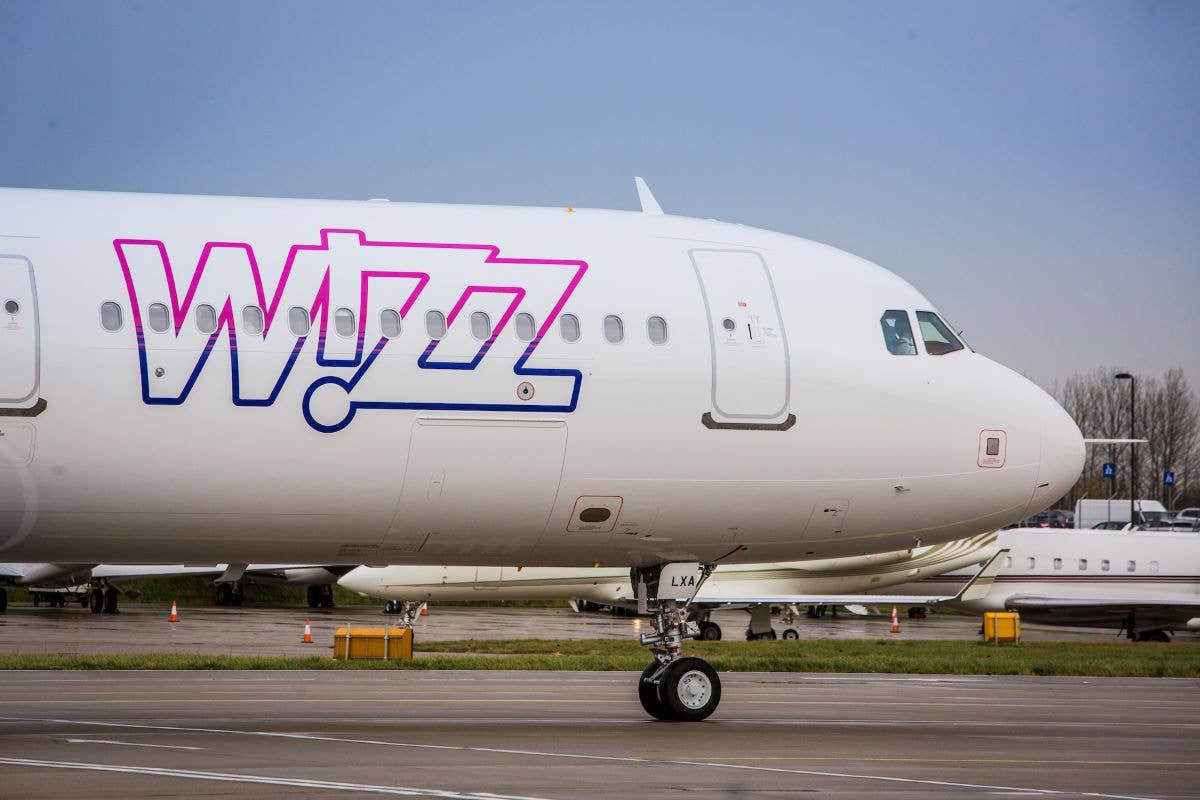Wizz Air to Use SAF Produced From Human Waste
U.K. biofuel company Firefly will supply human waste-originated SAF to ultra-low-cost carrier by 2028.

A Wizz Air A321 aircraft in the airline’s new livery. [Courtesy: Wizz Air]
Hungarian ultra-low-cost carrier Wizz Air and U.K. biofuel company Firefly have announced a partnership that aims to power 10 percent of flights operated by the carrier with sustainable aviation fuels (SAF) produced out of human waste by the year 2030.
The Firefly plant located in Harwich, England, will be adapted to convert human feces into SAF of which they are planning to deliver up to 525,000 tons over 15 years starting in 2028.
This initiative is part of Wizz Air’s effort to reduce its carbon emission per passenger/km by 25 percent by 2030. The aviation industry as a whole has set itself a ambitious target to be carbon neutral by the year 2050, and according to the International Air Transport Association (IATA), 80 percent of the reduction in emissions will be achieved through the use of SAF.
In February 2023 Wizz Air announced a similar agreement with Finnish group Neste for the supply of up to 36,000 tons of SAF over the period of three years starting in 2025. Neste MY SAF is produced from renewable waste and residues such as used cooking oil and animal fat waste.
Other airlines such as Swiss, Ryanair, Etihad Airways, and Southwest Airlines have already made similar agreements to source SAF from Neste or other companies.
Lifecycle Carbon-Emissions Neutrality
Currently, the main issue with the sustainability targets pursued by the aviation industry is the lack of large-scale availability of SAF and the supply chain that is supposed to deliver it where it is needed at airports around the world. SAF is intended to work with the existing technology as far as engines and aircraft are concerned and can deliver a reduction of up to 80 percent in greenhouse gas emissions due to the oxygen-positive and carbon dioxide-negative effects during the production phase of its life cycle.
When burned to power jet engines, SAF generates similar amounts of greenhouse gases as traditional oil-based fuels, but since they absorb those gases during their production phase, the net result of their impact on the environment is significantly lower.
In addition to that, SAFs are generated from renewable resources, unlike oil-based fuels.
“There are enough biosolids in the U.K. to satisfy half of the mandated SAF demand in 2030” said Paul Hilditch, Firefly's chief operating officer.
A utility company has committed to providing the biosolid needed by Firefly during the initial pilot phase, the BBC reported. The biosolids are a product of the wastewater treatment process.
“Wizz Air celebrates two decades of transformation this year, transitioning from a small airline into a global leader of sustainable aviation and affordable travel," said Yvonne Moynihan, corporate and ESG officer at Wizz Air. "Alongside fleet renewal and operational efficiency, sustainable aviation fuel (SAF) plays a crucial role in reducing carbon emissions from aviation. Our investment in Firefly, which has the potential to reduce our lifecycle emissions by 100,000 tons CO2-eq per year, underscores our commitment to mainstream the use of SAF in our operations by 2030.
“However, achieving our aspiration requires a significant ramp-up of SAF production and deployment. Therefore, we call on policymakers to address barriers to SAF deployment at scale by incentivizing production, providing price support, and embracing additional sustainable feedstocks for biofuel production.”
Editor’s Note: This article first appeared on AirlineGeeks.com.

Subscribe to Our Newsletter
Get the latest FLYING stories delivered directly to your inbox






